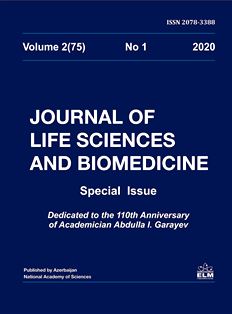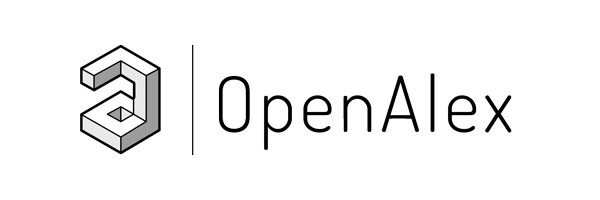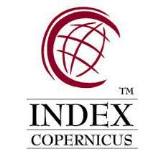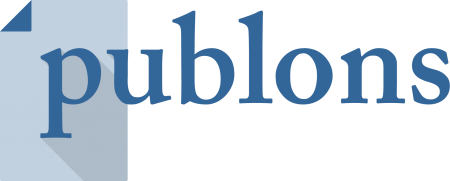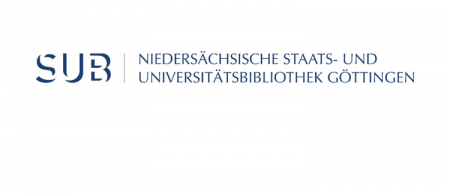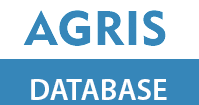
Publication Ethics and Malpartice Statement
Journal of Life Sciences and Biomedicine
Belongs to: Division of Biological and Medical Sciences, Azerbaijan National Academy of Sciences
ISSN (Print): 2710-4915 ISSN (Online): 2710-3447
The Journal of Life Sciences and Biomedicine is committed to upholding the highest standards of publication ethics and takes all forms of publication malpractice seriously. All parties involved in the publication process—authors, reviewers, editors, and publishers—are expected to fully adhere to the following principles.
1. Duties of Authors
Originality and Plagiarism: Authors must ensure that their submitted work is original, properly cited, and free from plagiarism. Any form of plagiarism, including self-plagiarism, is unethical and unacceptable.
Data Integrity: Authors must present accurate data and results. Fabrication, falsification, or manipulation of data is considered misconduct.
Multiple or Redundant Submissions: Submitting the same manuscript to more than one journal concurrently is unethical and prohibited.
Authorship: Only individuals who have made a significant contribution to the research should be listed as authors. All listed authors must approve the final version of the manuscript.
Conflicts of Interest: Authors must disclose any financial or personal conflicts of interest that could influence the research or interpretation of findings.
Corrections and Retractions: If an error or ethical breach is identified post-publication, authors must promptly notify the editorial board and cooperate in issuing corrections, retractions, or apologies.
2. Duties of Reviewers
Confidentiality: Reviewers must treat submitted manuscripts as confidential documents and must not share or use unpublished content for personal advantage.
Objectivity: Reviews must be conducted objectively, based solely on the academic merit of the work, regardless of authors' nationality, institutional affiliation, or personal characteristics.
Conflict of Interest: Reviewers must disclose any potential conflicts of interest and decline review assignments if they are unable to provide an impartial evaluation.
Reporting Misconduct: Reviewers should report suspected ethical violations (e.g., plagiarism, duplicate submission) to the editors.
3. Duties of Editors and the Editorial Board
Fair and Transparent Decisions: Editorial decisions must be made solely on the basis of scientific merit, originality, clarity, and relevance, without discrimination.
Confidentiality: Editors must not disclose any information about a manuscript under review to anyone other than the corresponding author, reviewers, or editorial staff.
Handling Misconduct: The editorial board will investigate all allegations of publication malpractice. If necessary, the journal will issue retractions, expressions of concern, or corrections in accordance with COPE guidelines.
Conflict of Interest: Editors will avoid handling manuscripts in which they have conflicts of interest.
4. Publisher's Responsibility
The Division of Biological and Medical Sciences of the Azerbaijan National Academy of Sciences, as the publisher of the journal, ensures that editorial autonomy is preserved and takes reasonable steps to identify and prevent the publication of manuscripts involving research misconduct.
Ethical Oversight and Complaints
Ethical concerns and complaints related to any aspect of the publication process should be reported to the journal’s editorial office at:
📧 [Insert editorial email address]
All concerns will be investigated thoroughly in accordance with COPE’s flowcharts and best practice guidelines.
This statement is based on the recommendations of the Committee on Publication Ethics (COPE), the International Committee of Medical Journal Editors (ICMJE), and international best practices in scientific publishing.
Editorial Ethics and Responsibilities Policy
(Adopted in accordance with COPE Code of Conduct and Best Practice Guidelines)
The editorial team of the Journal of Life Sciences and Biomedicine (JLSB) adheres to the principles set forth by the Committee on Publication Ethics (COPE). These standards guide all aspects of editorial practice, from submission to publication, ensuring transparency, accountability, and academic integrity.
1. General Responsibilities of Editors
Editors are responsible for all content published in the journal and are committed to:
Meeting the needs of authors and readers.
Maintaining editorial independence and integrity.
Upholding academic and ethical standards regardless of commercial pressures.
Publishing corrections, retractions, or clarifications when necessary.
Best Practices:
Engaging with authors, reviewers, and readers to improve editorial processes.
Supporting education on publication ethics and responsible research.
Regularly reassessing editorial policies in light of new research and community feedback.
2. Editorial Independence
JLSB upholds the principle of editorial freedom. Decisions to accept or reject manuscripts are based on scholarly merit, originality, clarity, and relevance to the journal’s scope. No outside influence — commercial or institutional — is allowed to affect editorial decisions.
3. Peer Review Process
JLSB implements a double-blind peer review system:
Manuscripts are reviewed by at least two qualified experts.
Reviewer identities are kept confidential.
Reviewers are required to disclose any conflicts of interest.
Editors monitor review quality and timelines, and reviewers who do not meet standards may be removed.
Best Practices:
Encouraging reviewers to assess ethical aspects of research.
Using plagiarism detection and bibliographic tools.
Monitoring and recognizing reviewer contributions.
4. Author Relations
Editorial decisions are based on academic merit.
Authors are provided with clear submission guidelines.
Authors may appeal editorial decisions with justified reasoning.
The journal publishes submission and acceptance dates for transparency.
Best Practices:
Ensuring fair reviewer selection.
Protecting authors’ rights.
Encouraging use of international ethical guidelines (e.g., ICMJE, CONSORT).
5. Editorial Board Responsibilities
Editorial board members are selected based on their expertise and expected to:
Promote the journal and solicit quality submissions.
Assist in peer review and decision-making.
Provide input on policy and journal improvement.
Best Practices:
Clear role definitions and annual review of board composition.
Ensuring transparency in editorial board submissions and avoiding bias.
6. Handling Misconduct
All suspected cases of ethical misconduct (e.g., plagiarism, data fabrication) are investigated according to COPE flowcharts.
Editors will follow up with authors and institutions as needed.
No paper will be rejected solely on suspicion; fair inquiry is ensured.
7. Research Ethics and Consent
All research involving humans or animals must follow internationally recognized standards (e.g., Declaration of Helsinki).
Manuscripts must include ethics approval and informed consent where applicable.
Editors may request documentation to verify compliance.

